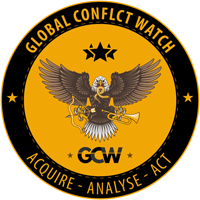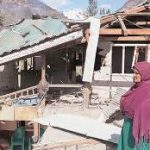Pakistan Puts Stop on any Official engagement with Afghan National Security Chief

ISLAMABAD – Pakistan has conveyed to the leadership in Afghanistan it will no longer conduct official business with Kabul’s top national security chief because of his recent “abusive outburst” against Islamabad, highly placed officials and diplomatic sources confirmed to media.
The controversy has again highlighted political tensions and historic mistrust plaguing relations between the South Asian neighbors, which share a nearly 2,600-kilometer border.
The latest trigger came from Afghan President Ashraf Ghani’s national security adviser, Hamdullah Mohib, who routinely accuses Pakistan and its spy agency of supporting and directing the Taliban’s insurgency in Afghanistan, charges Islamabad rejects.
In a public speech earlier this month in eastern Nangarhar province, next to the Pakistani border, Mohib not only repeated his allegations but called Pakistan a “brothel house.”
His remarks outraged leaders in Islamabad, who denounced them, saying they “debased all norms of interstate communication.”
According to media reports, Pakistan has launched a strong protest with Afghan government in this regard. COAS Gen Qamar Javed Bajwa reportedly raised this issue during his last visit to Kabul.
Sources have confirmed that a clear message has been sent to Kabul that Islamabad, henceforth, would not hold bilateral engagements with the Afghan national security adviser. Islamabad has also expressed its concerns regarding the non-seriousness of Afghan government about bilateral ties and continuation of blame game from Kabul.
While Afghan leaders accuse Pakistan of being behind the Taliban’s violent campaign in their country, U.S. officials, including Khalilzad, have persistently praised Islamabad for bringing the insurgents to the negotiating table to discuss a peace arrangement with the Afghan government to permanently end the war.
“Pakistan has played an important role in Afghanistan,” David Helvey, assistant secretary of defense for Indo-Pacific affairs, told the U.S. Senate Armed Services Committee last week. “They supported the Afghan peace process. Pakistan also has allowed us to have overflight and access to be able to support our military presence in Afghanistan.”
Islamabad has lately further relaxed visa restrictions for Afghans, created new border facilities to accelerate bilateral and transit trade with the landlocked country, and increased scholarships for Afghan students to study at Pakistani universities. Pakistani officials say the measures are meant to enhance bilateral ties in support of the Afghan peace process.







Comments